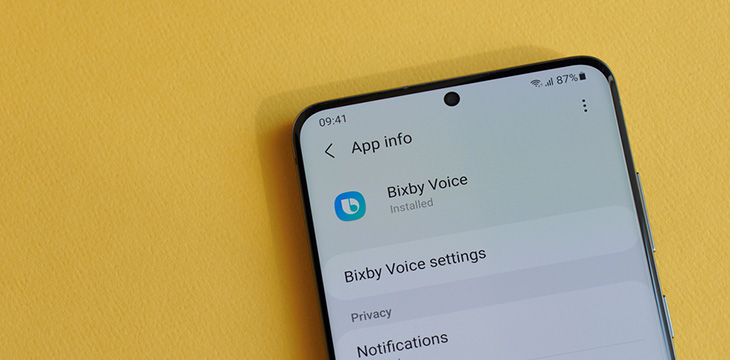|
Getting your Trinity Audio player ready...
|
Mobile phone behemoth Samsung has announced plans to release an upgraded version of its voice assistant before the end of 2024, laced with the powers of large language models (LLMs).
Dubbed Bixby, the voice assistant will combine generative artificial intelligence (AI) capabilities to improve its performance for Samsung mobile device users. Bixby’s latest version will rely on Samsung’s native LLM rather than mainstream offerings from OpenAI, Anthropic, or Google (NASDAQ: GOOGL).
Bixby entered the scene in 2017 to compete with Apple’s Siri (NASDAQ: AAPL). It boasts a number of impressive functionalities, including voice and text commands, on-screen contextual awareness and smart home controls. In an interview, Samsung mobile division head TM Roh disclosed that the LLM integration will improve the voice assistant’s existing capabilities by a country mile.
“We’re going to advance Bixby with the application of Gen AI technology,” said Roh.
The executive noted that Bixby will have enhanced natural language understanding, allowing users to interact with the assistant using nuanced or colloquial language. Bixby Vision may be the biggest winner with an integration that allows users to search and receive in-depth information by merely using their phone cameras.
Other improvements for the voice assistant include enhanced predictive capabilities, wider language support and advanced contextual awareness.
The pivot to generative AI comes amid stiff industry competition, with Apple noticeably improving the capabilities of its voice assistant with OpenAI’s ChatGPT. Google’s own voice assistant has received its own generative AI glow-up, forcing the South Korean-based Samsung to explore an AI integration.
“As consumers use more AI capabilities they can actually feel the convenience and benefits they bring,” said Roh. “I believe strongly that these Galaxy AI and mobile AI are strong motivations and drivers for the purchase of new products.”
Samsung says it will still support other voice assistants on its mobile devices rather than limit users to Bixby in line with its storied history of interoperability to maintain a hold of its existing market share. Samsung has announced new AI functionalities on new devices in an attempt to force the hand of customers to upgrade to new devices.
A rough brush with Gen AI
Samsung’s push with generative AI has not always gone according to plan, with experts criticizing mobile phone makers for dragging their feet with AI. The two-horse race with Apple has no clear leader despite Samsung’s embrace of blockchain technology and superiority with AI chips.
Last year, Samsung restricted its staff from using AI tools over fears of a data leak but maintained a commitment to continue AI development for consumers.
“We ask that you diligently adhere to our security guidelines, and failure to do so may result in a breach or compromise of company information resulting in disciplinary action up to and including termination of employment,” read the internal memo.
In order for artificial intelligence (AI) to work right within the law and thrive in the face of growing challenges, it needs to integrate an enterprise blockchain system that ensures data input quality and ownership—allowing it to keep data safe while also guaranteeing the immutability of data. Check out CoinGeek’s coverage on this emerging tech to learn more why Enterprise blockchain will be the backbone of AI.
Watch: Understanding the dynamics of blockchain & AI

 02-21-2026
02-21-2026 




